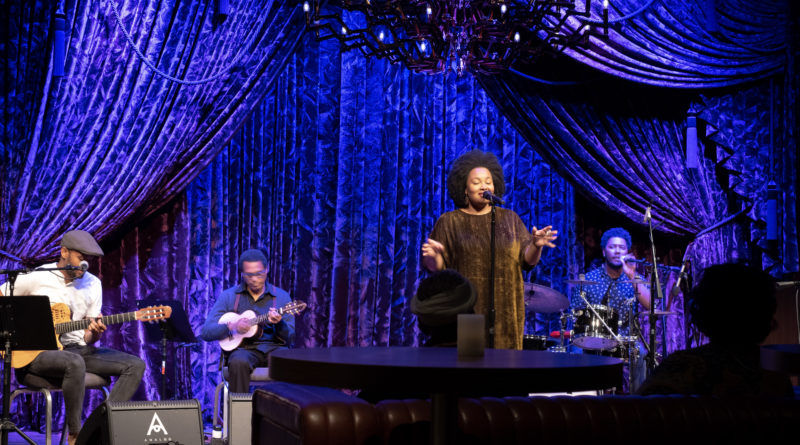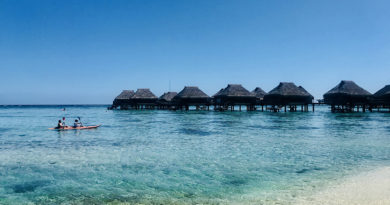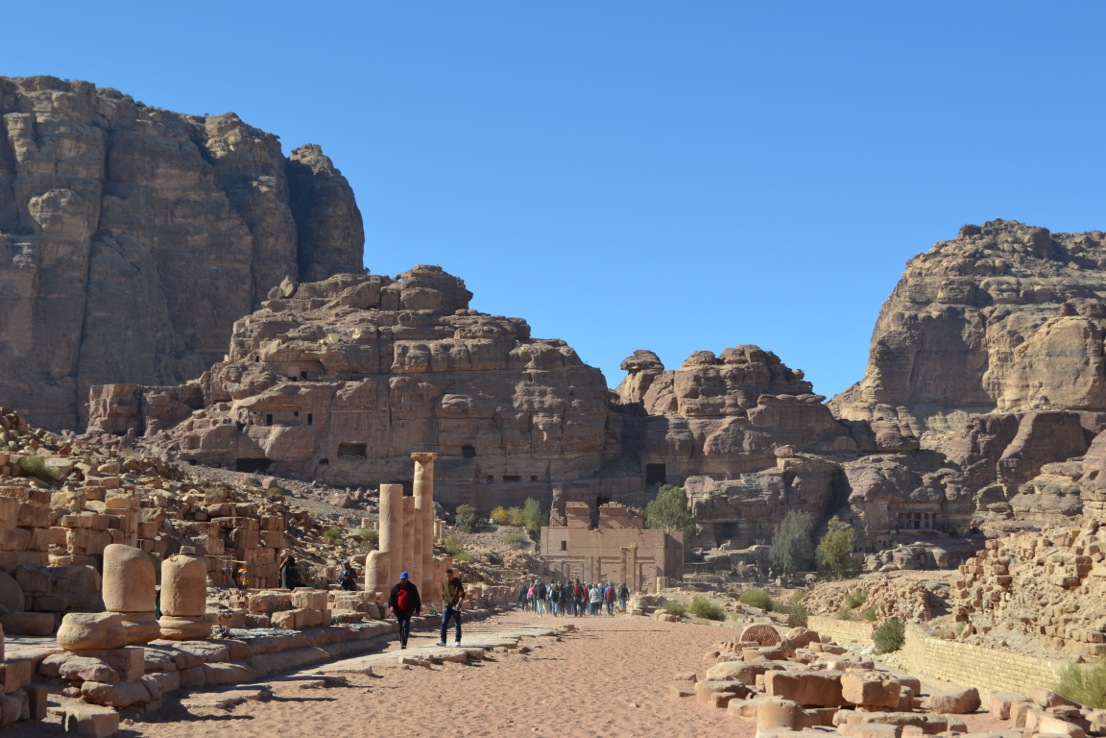Beyond Bourbon, Blues, and Backwoods: A Place to Hang Your Hat in Tennessee
It was summer of 2022 when the mass exodus went into full gear—Californians packing up for Tennessee in search of lower taxes, affordable housing, and a change of pace. From our neighbors and friends to family and coworkers, we heard tales from the bold and brave leaving behind the Golden State in a quest for their own precious metal.
Curious and travel-hungry, my husband and I booked a trip to Tennessee with a plan to visit three destinations in one week: Columbia, Memphis, and Nashville. Our afternoon flight took us from San Diego to Music city, with a brief layover in Houston.
A rental car in Tennessee cost around $200, with gas prices percolating around $3 a gallon. It was just after 10 PM when we hit the empty highway with passing pickups promoting “Dolly for President” and “Go Titans.” Billboards advertised city attractions like The Grand Ole Opry and Graceland, both of which we intended to visit on our Tennessee tour. But for now, we would check into the Graduate Nashville.
Opened in 2019, this funky-floral-flashy hotel caters to the cool kids, where Vanderbilt students set up shop between classes. The property’s slogan, “We are all students” rang true as we were greeted by both history and legend with a 15-foot latch-hook rug of Minnie Pearl. Commissioned by Margaret Timbrell, this kitsch masterpiece is a nod to the Hee Haw star who hollered “How-DEE!” over the Grand Ole Opry airwaves for over 50 years.
The playful property was pink heavy, in the crushed-velvet chairs, the pinstriped wallpaper, and the neon sign above our bed reading, “It costs a lot of money to look this cheap.” Between the tassels and fringe were lamps made from hoopskirts and plenty of Dolly Parton memorabilia.
Smack in the heart of Midtown, the Graduate beckoned bachelorettes who booked out the rooftop bar, White Limozeen, or sang their way into Cross-Eyed Critters. Here, you can unleash your inner twang with an animatronic backup band (think Chucky Cheese-meets-dive bar).
This Vegas of the South was just warming up for the night, but instead of going big, we tapped into our inner jetlag and slept an extra hour (or two). The following morning, we hit the road for Columbia, with a plan to circle back to Nashville at the end of our Tennessee trek.
Columbia lured us for two reasons: One, rumor had it that it was one of America’s best small towns, and two, my sister-in-law confirmed the rumor by moving there. In less than an hour, we were strolling down historic Main Street complete with its Town Square, ice-cream parlors, barber shops, and cafés with red-and-white awnings.
Standing proudly in the center was Maury County Courthouse, noted as the hub for the livestock market, Mule Day, dating back to 1840. Every April, the tradition continues as a multi-day festival attracting thousands to this quaint town. For us, it was hard to imagine the streets packed with spectators since we practically had the place to ourselves.
In Columbia, you can let your kids run free to grab waffle cones with extra sprinklers while you shop without a wish list. We did that, minus the kid part since there seemed plenty to go around.
It was Blue 32 Vintage Marketplace that lured us with antiques and a cafe inside a 1920s JC Penney. The creak of the floorboards guided us directly to Level 3 where we found a small bistro, Autumn Cut the Cheese.
The name is as clever as the chef, “Autumn,” who serves charcuterie boards, grazing tables, and paninis oozing with Gruyere, fig jam, and prosciutto. Autumn, along with her husband, Casey—and their four kids—shook hands with Nashville in 2017 to pursue a budding music career. Another dream set in, and they pivoted toward Autumn’s love for feeding friends around the table.
By 2:00, the restaurant was closed . . . for the day. Yep, that’s sort of how things work in Columbia, with limited operating hours and a downtown that’s flatlined by 8 PM. Some say that’s about to change with big names like Sheryl Crow, and American Pickers producer, Mike Wolfe, buying up Main Street.
For now, the Southern hospitality and community pride of “Muletown” is corralled by the 43,000 locals who know a good thing when they see it — especially on the outskirts of town dotted with brick homes and enough churches to save souls to Memphis and back. Draped from wrap-around porches are American flags declaring patriotism alongside porch swings and rocking chairs. Plantation homes seem almost abandoned, alone in emerald fields beside hammer-beamed barns so enduring and sovereign, you can almost smell the toiling of a farmer’s hands.
Strangers waved and called us “y’all” in our approach to Firefly Creek, our Airbnb for the next two nights. Backing the 1900s converted farmhouse was the namesake, Firefly Creek, with plenty of privacy for napping in hammocks and sipping wine beneath shooting stars.
That home was our little refuge in between blackberry bourbon cocktails at Southern Tre Steakhouse, and hikes at Stillhouse Hollow Falls. At the foot of the 75-foot waterfall, we flyfished and caught crawdads in the watershed of Duck River.
Side trips took us to the homegrown lure of Leiper’s Fork, and to the historic district of Franklin, beaming with Victorian architecture and Main Street locked in the 1950s. Window shopping turned into purchases at White’s Mercantile, owned by Hank William’s granddaughter, Holly. We toured Carter House where the Battle of Franklin claimed the lives of thousands on November 30, 1864.
History surrounded us, even during our final morning in Columbia. Dating back to 1950, Puckett’s restaurant drew us in with signs reading, “This way to hot biscuits.” In this former hardware store, southern comfort food was in full effect with French toast layered with peanut butter, and Apple Jack pancakes topped with whiskey-fried apples and crispy fried chicken . . . for breakfast. As a couple who typically skips the first meal of the day, our bellies were in shock.
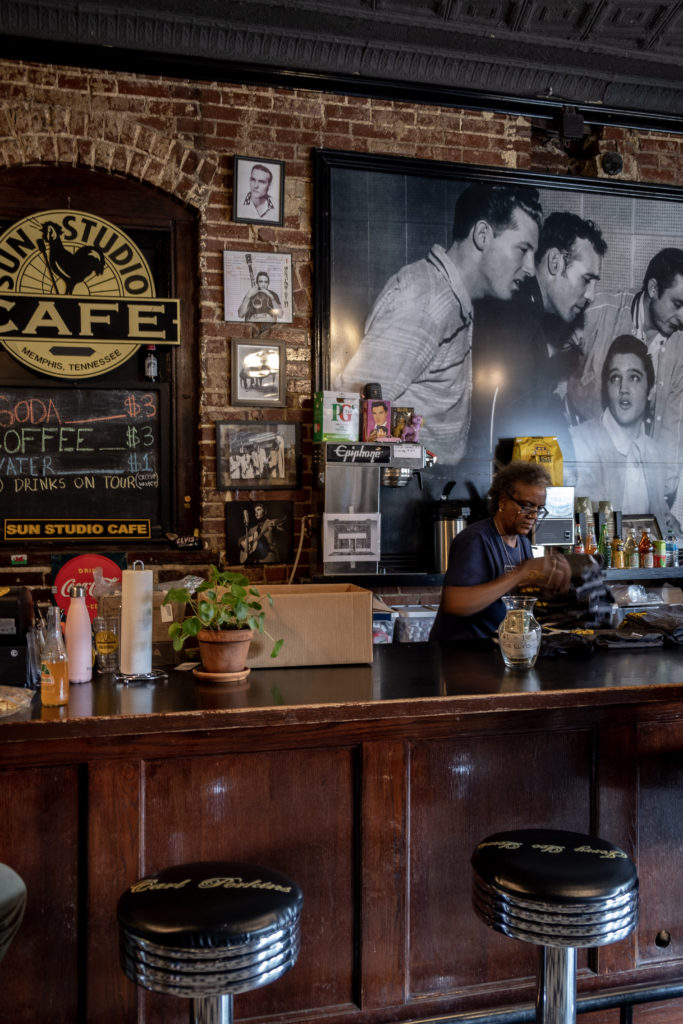
During the 3-hour drive to Memphis, I slept my calories away while my husband drove like a champ, food coma and all. By early afternoon, we groggily entered Sun Studios, the birthplace of Rock’n’roll that put legends like B.B. King, Elvis Presley, Johnny Cash, and Jerry Lee Lewis on the map.
We toured Graceland, walking in the footsteps of Elvis’ humble beginnings to his rise as “The King of Rock ‘n’ Roll”. We hopped aboard a shuttle and toured the mansion, museum, and his private planes, feeling a bit like we were invading the space of a rebellious hero who was bombarded as much in his death, as in his life.
During our two days in Memphis, we soaked in stories of soul music and the impact it made on the world. Going directly to the source, we stopped by the Stax Museum, a superfly hub showcasing Isaac Hayes’ glittering Cadillac Eldorado, and original recordings by Otis Redding, Booker T. & the MGs, and other artists of the ’60s and ’70s.
For our last stop, we visited the National Civil Rights Museum, a somber experience where exhibits are housed within the Lorraine Motel. It’s here where Martin Luther King, Jr. was assassinated on April 4, 1968. The museum chronicles moments in time, from the slave trade to the present, that inspires people to stand up for equality.
Within walking distance were notable restaurants including The Arcade—Memphis’ oldest café—and Central BBQ, famous for its fall-off-the-bone meat. Among our favorites was Panta, a Catalan restaurant with a Memphis twist. Cocktails paired perfectly with gulf shrimp, potato croquettes, and stewed mussels.
It was hard to think about eating again, but we did, this time at our hotel, Big Cypress Lodge. Housed inside a 535,000-square-foot pyramid, the hotel overlooks Bass Pro Shop with 100-foot-trees, a swamp with live alligators, and the nation’s tallest freestanding elevator. This Davy Crockett playground had enough taxidermy to last me a lifetime, with themed rooms styled after cabins and treehouses. Dark woods, beamed ceilings, and leather club-chairs attract hunters and fishermen, as does The Lookout Restaurant where we dined on white river catfish and duck sausage.
The retail-and-hotel in one concept was birthed out of a bet by Johnny Morris, the CEO of Bass Pro Shops. While fishing with his buddies, he vowed to transform the Memphis Pyramid—if they caught a 30-pound catfish—into a place that would connect people with their love for nature.
In those two days, we saw it, the connection that Memphis triggers between strangers, igniting the souls of those bewitched by its music. And so, we went to the heart of it all on Beale Street. Between neon lights and bent notes of blues were nightclubs, restaurants, shops, and theaters. But it was the 1860s that set the stage for traveling musicians who labeled this the “Home of Blues.” Songs of segregation finally had a voice to bellow tunes of hope and clarity.
As a couple who generally can only handle a handful of museums, we couldn’t get enough of them in Tennessee, especially during our two days in Nashville. The Country Music Hall of Fame, Ryman Auditorium, Johnny Cash Museum, Hatch Show Print, and a backstage tour of the Opry were all on our checklist. Nashville nabbed us, to the point we changed our radio station to country music, watched documentaries on Elvis, and went on a mad hunt for the coolest cowboy hat in town.
Between shopping and sightseeing, we brunched at the trendy Butcher & Bee with a seasonal, sustainable menu that landed it a spot among James Beard Award finalists. For uncaged spirits we went airborne to Rare Bird, the rooftop bar at Noelle hotel. Almost too good to leave, we spent hours within that downtown property, continuing onto the hotel’s restaurant, Makeready L&L.
On our way out, we heard whispers of a “hidden bar,” which we had a heck of a time finding. Behind a storage closet door was a speakeasy thronged with party people dancing, drinking, and raising classes from velvet booths illuminated by disco balls.
I felt old.
So, we took the vibe down a notch with live jazz at Analog, one of 150 music venues in Nashville. Located at Hutton Hotel in a living-room setting, the intimate theater hosts inspired musicians ranging from Thomas Rhett to Carrie Underwood. Just outside was Music Row, home to recording studios, radio stations, and music production companies.
After our night out on the town, we detoxed with Bike the Greenway, a local outfitter offering rentals and routes along Shelby Bottoms Greenway. Whitetail deer grazed trailside, immune to bikes, runners, and skaters whizzing by. I slammed on my brakes to capture the moment, only to notice locals were obviously accustomed to wildlife in this neck of Nashville.
Downtown was another type of wildlife, however, with party buses and pedal taverns—literally 15-person beer bikes—cruising Broadway. This beating heart of Nashville had live music pouring out of every bar, saloon, and honky-tonk in sight.
From our table at Boqueria, we soaked in the scene while sipping sangrias and nibbling tapas like croquettes and shrimp bathed in olive oil and garlic.
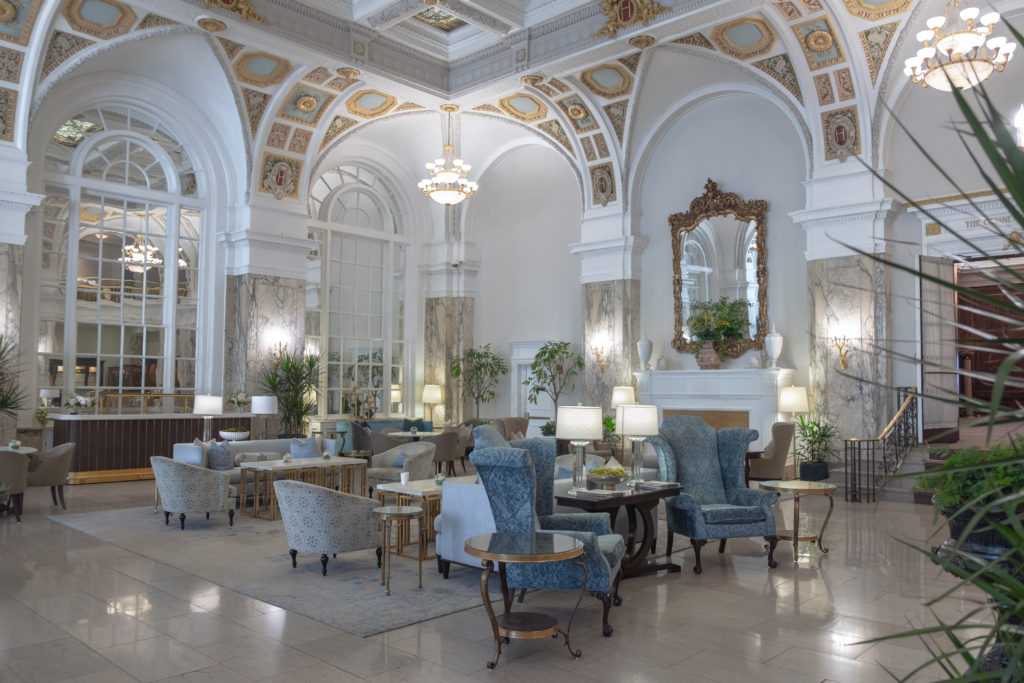
Saving the best for last, we spent our final nights at The Hermitage Hotel, a landmark dating back to 1910. It was the historic event, just a decade later, that would put the hotel on the map, a tie-breaking hand that ratified the 19th amendment, granting women the right to vote. The Hermitage Hotel became the infamous backdrop for political action and the headquarters for women’s Pro- and Anti-Suffrage groups.
Over a century later, The Hermitage is still on the map, turning heads for its timeless elegance, Beaux Arts aesthetics, and the fine dining restaurant, Drusie & Darr. Pricy, but worth every penny, we sampled dishes of tuna tartar, red snapper ceviche, black truffle pizza, and whisky-poached lobster with passion fruit butter. From the pressed white linens to the mother-of-pearl pendant lamps, the entire experience was perhaps the most dramatic, bespoke, and refined meal of my life.
Those three towns in seven days almost felt like Columbia, Memphis, and Nashville were in entirely different states—each one leaving us with a rich taste far beyond bourbon, blues, and backwoods.
En route to the airport, we replayed moments of our time in Tennessee, debating if we would one day join the Californian coup d’etat. That’s when my husband detoured to hatWRKS, one of the county’s leading hat shops.
He tried on over 20 styles among 7,000+ hats in stock, before claiming his dream Stetson, with enough masculinity to know who’s in charge, without looking like he owns a horse. Twice in the airport, and once on the plane he was complimented on his new purchase.
Grabbing the brim, he nodded and winked, knowing he had made the right choice. Tennessee had a way of doing that—making you reconsider every choice in a quest for the right one. While we don’t plan on moving to Tennessee anytime soon, we certainly found a place to hang our hat.

